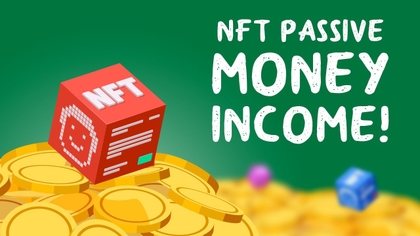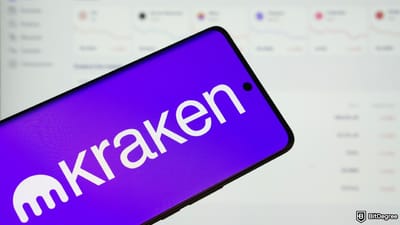Stop overpaying - start transferring money with Ogvio. Sign up, invite friends & grab Rewards now! 🎁
Because of the growth in popularity that Ethereum has seen (this is obvious from visiting any crypto exchange platform out there, such as Kraken, Coinbase, or Binance), the question 'what is a smart contract?' has become one of the most-asked questions in the crypto space just lately.
I understand that "smart contracts” can seem confusing at first. Though, once I explain them, you’ll realize that they are simpler than you think.
So, the purpose of this guide is to help you understand what is a smart contract and how do smart contracts work.
By the end of this "Smart Contracts Explained" guide, you will never have to google “what is a smart contract?” again. You’ll understand how and why smart contracts began, the code it uses, how it can be used, and why it could change society forever!
However, before jumping into the in-depth analysis of the essence of smart contracts, let's quickly talk about Ethereum.

Did you know?
Subscribe - We publish new crypto explainer videos every week!
How to Trade NFTs Safely? (Animated Explainer For Beginners)


Table of Contents
- 1. Ethereum – Where It All Began
- 2. What is a Smart Contract?
- 2.1. The History of Smart Contracts
- 3. How Does a Smart Contract Work?
- 4. What Can Smart Contracts Be Used For?
- 4.1. Insurance Companies
- 4.2. Health Systems
- 4.3. Governments
- 4.4. Business Management
- 4.5. Supply Chain
- 4.6. ICOs
- 5. How are Smart Contracts Created?
- 6. Benefits and Drawbacks of Smart Contracts
- 7. Conclusions
Ethereum – Where It All Began
When thinking about blockchains that support smart contracts, it's obvious that Ethereum is the first one that should come up to your mind. After all, it was the one that introduced this concept to the crypto world (you'll find more info about that below). So, in order to understand what is a smart contract, it's important to know what is Ethereum.
Latest Deal Active Right Now:Of course, it’s 2023 — even those who are not familiar with blockchain are likely to have heard of Ethereum. Ethereum is the second-largest cryptocurrency with a huge market cap of over $225 billion.
However, Ethereum is not just a currency; it is also a platform that allows other blockchain applications to be built on it. In essence, the Ethereum blockchain works like the Bitcoin blockchain. It is a network of computers (or nodes) that run software that confirms transactions on the network. Though, it surely gets much more complicated than that.

The native currency of the Ethereum blockchain is Ether. Though, Ether works more like fuel than a normal cryptocurrency. In the same way that you need gasoline or diesel for your car, you need Ether to run the smart contracts and applications on the Ethereum blockchain.
Note: If you happen to have huge amounts of ETH coins, you should make sure to keep them in secure cryptocurrency wallets. The recommended options include Ledger Nano X and Trezor Model T.
Now, even though Ethereum is THE blockchain for smart contracts, there are other blockchains that support them. This includes Binance Smart Chain, Cardano, Solana, and so on. Besides, due to the Bitcoin's Taproot upgrade, even the Bitcoin chain has the possibility of hosting smart contracts.
With that being said, let's move on to the "what it is?" part of this "Smart Contracts Explained" guide.
What is a Smart Contract?
So, what is a smart contract? Put simply, you can think of smart contracts as "if-then" statements. Usually, they are set exactly this way – if something happens, then something else will happen.
To look into it more in-depth, there are three key points you should know about smart contracts:

A smart contract is an agreement between two people in the form of computer code. They run on the blockchain, so they are stored on a public database and cannot be changed.

The transactions that happen in a smart contract are processed by the blockchain, which means they can be sent automatically without a third party. This means there is no one to rely on!

The transactions only happen when the conditions in the agreement are met — there is no third party, so there are no issues with trust.
Now, before we get into the more technical stuff, it’s also important to talk about the history of smart contracts. Knowing why and how smart contracts were created makes it easier to understand their purpose in the blockchain world.
The History of Smart Contracts
In 1994, Nick Szabo (a cryptographer), came up with the idea of being able to record contracts in the form of computer code. This contract would be activated automatically when certain conditions are met. This idea could potentially remove the need for trusted third-party companies (such as banks).
Why, though? The answer is simple — because you no longer need a trusted third party when you make a transaction. Instead, the contracts (or transactions) are self-executed on a trusted network that is completely controlled by computers.

Cool idea, right? Szabo worked on this idea for many years and even wrote a book called “Smart Contracts: Building Blocks for Digital Free Markets“. The problem was that back in 1994, blockchain technology didn’t exist.
But it does now!
In 2009, Bitcoin introduced the first use of blockchain technology. In 2015, Ethereum was founded by an intelligent young man named Vitalik Buterin, and it introduced the first working smart contracts.
(To learn more about blockchain technology, check out our "Blockchain Explained" guide.)
How Does a Smart Contract Work?
So, you know what a smart contract is. Now, you might be wondering how do smart contracts work, then?
To find the answer, let's start by looking at how a smart contract can be used:
Let’s imagine that John wants to buy Mike’s house. This agreement is formed on the Ethereum blockchain using a smart contract. This smart contract contains an agreement between John and Mike.
In the simplest terms, the agreement will look like this: “WHEN John pays Mike 300 Ether, THEN John will receive ownership of the house”.

Once this smart contract agreement has been put into place, it cannot be changed — meaning John can feel safe to pay Mike 300 Ether for the house.
Without the use of a smart contract in this scenario, Mike and John would have to pay lots of fees to third-party companies. Including the bank, a lawyer and a house broker.
It’s great, right? No more commissions and no more delays to wait for a lawyer and broker to process the agreement! This is just one of many examples of smart contract usage.
Smart contracts are automatically executed once the conditions of the agreement are met. This means there is no need for a third party, like a bank, a broker, or a government.
How is This Possible?
As mentioned before in this "Smart Contracts Explained" guide, we have the blockchain to thank for that. Because of blockchain technology, we are able to decentralize smart contracts so that they are fair and trustless. By decentralizing, I mean that they are not controlled by one central party (like a bank, broker, or government, etc.).
The blockchain is a shared database run by many computers (called 'nodes') belonging to many different people. Because of this, not one single person or company has control of it.

It means it's near impossible to hack it — the hacker would need to hack more than half of the nodes if they wanted to attack the blockchain or the smart contracts that run on it. Therefore, smart contracts can run safely and automatically without anyone being able to change them! Now you know even more about what a smart contract is!
What Can Smart Contracts Be Used For?
As I said earlier, Mike & John’s house sale is not the only scenario in which smart contracts can be used. Smart contacts can be used for any type of transaction — it doesn’t have to be financial.
The possibilities are endless for smart contracts. They are already being used for financial trades and services, insurance, credit authorization, legal processes, supply chain processes, and even for crowdfunding agreements (ICOs).
Let’s look at how smart contracts are already benefiting certain industries and how they will benefit other industries in the future…
Insurance Companies
Insurance companies could surely benefit from the use of smart contracts. It would eliminate the need of unnecessary communication between the insurance company and the user. Two insurance companies, Atlas Insurance in Malta and Axa in France, tested smart contracts in 2017. They had prototypes that compensated airline customers if their flights were delayed.

Let’s look at an example of a smart contract being used for insurance:
John is about to fly from NYC to Los Angeles. He sends $5 worth of cryptocurrency to the Axa Insurance smart contract and provides his flight number. Axa sends $95 to the smart contract. So, there is $100 in the smart contract.
If John’s flight is on-time, Axa is sent $100 from the smart contract. But if the plane is late, $100 is sent to John from the smart contract. Everything is automatic.
This saves lots of time and money. It also means that John does not have to trust that AXA will pay him the agreed amount if his flight is late — he knows that if it is late, the smart contract will instantly send him his compensation ($100).
Health Systems
Health systems also plan to use smart contracts to record and safely transfer data.

We can already see examples of smart contracts being used in the medical industry by the likes of EncrypGen. This is an application that uses smart contracts to transfer patient data in a secure way, allowing no access from third parties.
This way, the patients are in control of their own data. If researchers want to use patient data, they must pay for it. Not only that, but the patient has to choose whether or not they want to sell it to them.
Governments
For governments, smart contracts running on the blockchain can make voting systems completely trustless and much more secure.

Applications like FollowMyVote use smart contracts and blockchain technology to protect votes from fraud. When the voting transaction is written to the blockchain, it cannot be changed. When the voting is over, the smart contract will send a token to an address that represents the winner of the vote.
This way, voting is always fair, meaning the winner is always correct.

Did you know?
Subscribe - We publish new crypto explainer videos every week!
How to Make Passive Money with NFT? (Explained!)


Business Management
Businesses can benefit massively from smart contracts. Instead of paying staff to run payrolls, they can use smart contracts.
Businesses can just set up a smart contract that says WHEN the date is 28.03.18, the Business sends John 2 ETH. This means John will always be paid on time, and he will never be underpaid.
The business benefits because it is all automated, saving them lots of time and money!
Supply Chain
A supply chain is a network of entities that are involved in developing a product and delivering it to the customer. Stores, warehouses, and factories are all part of the supply chain. Thus, there are many complicated processes that take place until the product actually reaches the customer.

However, with the help of smart contracts, a lot of these processes could be automated.
For example, if an American company wanted to purchase goods from a European company, the whole process could be fully automated through smart contracts. This includes making an agreement, organizing the delivery of the goods, and even setting conditions for an instance of the goods not meeting the buyer's expectations.
This would not only eliminate the need for intermediaries but also would make the whole process much more secure and fraud-free.

- Secure and reliable
- Accepts fiat currencies
- Lots of trading options
- Reputable exchange
- Accepts fiat currencies
- Offers various trading options

- Huge trading variety
- Regulation-compliant around the globe
- Fair trading fees
- Beginner-friendly
- A wide array of features
- Vast number of different crypto coins & tokens

- Beginner-friendly
- Secure
- Decent trading and withdrawal fees
- Crypto.com Visa Card
- Automated tools & bots
- Ecosystem synergy with CRO
ICOs
If you want to start your own project that uses the blockchain, you can build your project on the Ethereum blockchain, as we saw earlier. However, you’re going to need some money!
How’re you going to get the money you need? Welcome to ICOs.
An ICO (Initial Coin Offering) is a crowdfunding system for new applications that use blockchain technology. You create a smart contract and a token for that smart contract.
Let’s imagine you call your token ABC.
You want to raise $10,000,000 to start your project and build your application — let’s imagine that $10,000,000 is equal to 10,000 Ether. You decide you’re going to put 100,000 ABC tokens into the smart contract, and that each ABC token is going to be worth 0.1 Ether.
That way, if you sell all 100,000 ABC tokens, you will have the 10,000 Ether that you need, because of 100,000 x 0.1 = 10,000.

Now, in the smart contract, you will write something like: IF 0.1 ETH is sent to the smart contract, THEN the smart contract will send 1 ABC to the address that sends the 0.1 ETH. That way, the people contributing to the ICO always get the right amount of ABC token.
Remember! It's crucial to keep your cryptocurrencies in secure wallets. The most recommended options are Ledger Nano X and Trezor, or Binance, if you'd prefer to use an exchange wallet.
Why would people want to buy the ABC token?
The two most common reasons people buy tokens from ICOs are:
- The token can be used on the application once it is built;
- The price of the token may increase when the project becomes more popular.
You can think of ICOs as a blockchain version of Kickstarter. The key difference is that it automates the whole crowd-sale process in a secure way.
How are Smart Contracts Created?
Now, this wouldn't be a proper "Smart Contracts Explained" guide without talking about how smart contracts are created.
As you already know, smart contracts can be built on multiple blockchain platforms, including Ethereum and Cardano. Besides, different blockchains might use different programming languages for developing smart contracts. However, the most popular one is Solidity, which is Ethereum's original coding language.
BTW, if you want to learn Solidity, you can try our Space Doggos interactive Solidity tutorial! It’s a fun and friendly way to learn Solidity. By following the steps in the course, you will create your own Solidity game!

The actual process of creating a smart contract looks something like this:
- Two parties need to establish the terms of their agreement. This agreement must include all conditions and obligations required for the execution of the smart contract.
- Then, you have to write code for a smart contract. The code defines the exact procedures that must be followed to execute the contract.
- Lastly, you need to deploy the written smart contract on a blockchain.
It's simple as that. Well, okay, the technical process itself is not that simple.
When the identified execution conditions are met, the smart contract gets executed and the information about the contract is entered in the blockchain in question. Do note that, once written into the blockchain, the contract's specifics are immutable, which means they cannot be amended or erased.

Now, let's say you don't know how to code and don't want to learn how to do that, can you create a smart contract without coding?
Yes, you can! How? By using a smart contract development platform. Such platforms provide users with smart contract templates that are especially easy to use due to the integrated drag-and-drop function. So, all you have to do is pick a template, alter it if you need, and fill in the required info. There's no coding on your part!
Benefits and Drawbacks of Smart Contracts
Okay, now that you know what is a smart contract, how does it work, and what is it used for, to make this a complete "Smart Contracts Explained" guide, it's time go through the benefits and drawbacks of smart contracts.
Benefits:
- Efficiency. Smart contracts are executed very swiftly.
- Automation. Smart contracts automate various processes and actions this way eliminating the need for intermediaries.
- Accuracy. Smart contracts eliminate human error, which means they are accurate.
- Trustworthy. Smart contracts create a feeling of trust between parties due to the fact that they are immutable and non-negotiable.
- Security. Smart contracts are safe because they are encrypted and stored on a blockchain.
Drawbacks:
- Immutability. Immutability can be both a blessing and a curse when it comes to smart contracts. On one side, it creates trust between parties involved in the smart contract. On the other side, if the parties wished to make changes to the contract, they cannot do that once it's executed.
- Complicated. Writing a code for a smart contract is not that easy as many factors must be considered for the contract to be flawless. Of course, if you use a smart contract development program, it will not be a problem for you. However, if you want to learn writing the code yourself, let's say that the learning curve is pretty steep.
That's it! You know everything you should know about smart contracts. So, the question "what is a smart contract?" should not scare you anymore.
Conclusions
You can see from the examples of smart contracts I have given that they are already beginning to replace middlemen. You also saw the potential this has for future applications — remember John and Mike’s house sale? They didn’t need an estate agent, lawyer or bank, did they?
So, if smart contracts fulfill their purpose, perhaps we’ll one day live in a world that is free of middlemen. What would happen then? The best thing about having no middlemen is the fact that we save a lot of money. Not only that, but we would no longer need to trust anyone, either.
There is a potential downside, too, though: people may lose their jobs. A middleman is a real person, just like you and me. Why would someone pay an employee to do a job that could be done for free by using a smart contract? They wouldn’t.
So, as you can see, smart contracts can make the world a better place that is free of commission. It can reduce fraud, delays, and the overall cost of many things. However, as we further advance technology, we remove the need for certain jobs. Now that you've read this guide, you should feel comfortable answering the golden question: "what is a smart contract?"80.
If, after reading this guide, you decide to purchase ETH coins, it's recommended to do that via Binance, Coinbase, or Kraken - it's simple, fast, and hassle-free. Binance allows you to purchase crypto with your credit card in a few easy steps. Also, make sure to choose a reliable crypto wallet, such as Ledger Nano X and Trezor.
The content published on this website is not aimed to give any kind of financial, investment, trading, or any other form of advice. BitDegree.org does not endorse or suggest you to buy, sell or hold any kind of cryptocurrency. Before making financial investment decisions, do consult your financial advisor.











